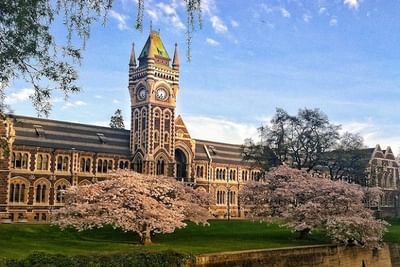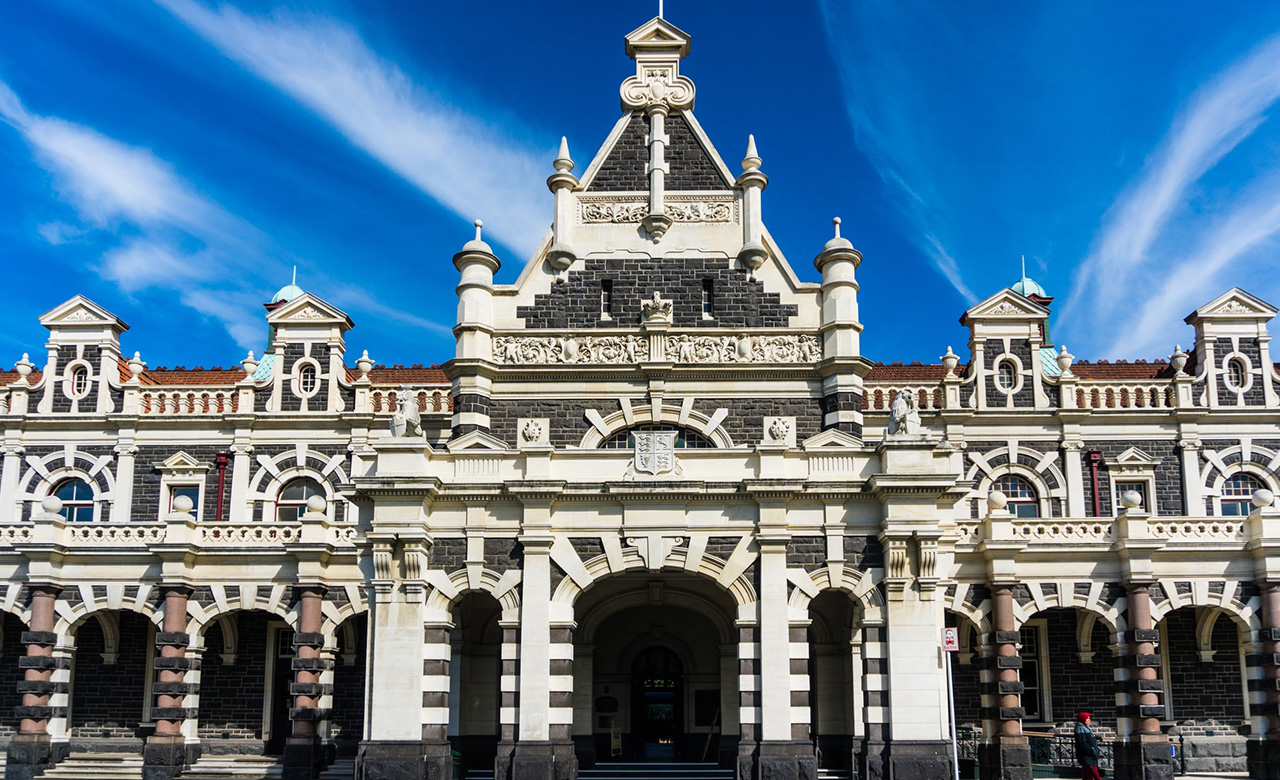Study in New Zealand
In recent years, New Zealand has become a popular study-abroad country amongst overseas students with excellent educational opportunities. Along with its stunning landscapes and scenic views, it also provides a pleasant and safe community with a global reputation for cutting-edge research and creative talent. These factors combine to make the country a desirable location for international students to study in New Zealand. Every year, over 30,000 students from all over the world pick New Zealand as their study abroad destination. Its universities are mostly research-based and state-owned. They provide courses ranging from certificate to PhD level, with the majority of courses lasting a full year.
Education System in New Zealand
Because New Zealand was previously a British territory, higher education in New Zealand is quite similar to that in the UK. This indicates that qualifications obtained in New Zealand are typically transferable to institutions in both, the United Kingdom and Australia. The New Zealand Qualifications Authority must accredit all educational institutions that grant qualifications (NZQA).
The New Zealand education system is based on the British educational system, making it widely recognized. There are four types of higher education institutions in New Zealand:
- Universities
- Polytechnics and institutes of technology
- Colleges of education
- Private training providers
Universities
New Zealand's universities are mostly research-oriented and state-owned. They provide courses ranging from certificate to PhD level, with the majority of them lasting a year. Some courses are only offered for one semester and may even be taken in the middle of the academic year.
Polytechnics and Institutes of Technology
Polytechnics and institutes of technology are also state-owned institutions that provide courses comparable to those given at universities. These establishments are more vocational in nature and provide a more hands-on learning experience than many university courses. They provide education ranging from certificates to degrees. Many also provide postgraduate courses of extremely high international standing.
Colleges
Colleges of education in New Zealand are teacher-training schools that are usually linked with or combined with a local university.
Private Training Providers
Private training providers provide training in a specialised area, such as tourist management, hotel management, cookery, or business. These institutes, which are accessible to foreign students, are likewise vocationally focused and strive to place students in qualified employment immediately after graduation.
Why Study in New Zealand
New Zealand is a rapidly growing destination for high-quality education and a welcoming learning environment. Over the years, the number of students choosing New Zealand as a study abroad destination over other places has steadily increased. Here are a few reasons why you should decide to study in New Zealand for International Students -
Well-Structured Programmes & Courses: All programmes provided by New Zealand's state-funded institutions must pass severe quality inspections. The New Zealand Qualifications Authority (NZQA), a government institution in charge of quality management, must approve all non-university education programmes.
Globally-Recognized Institutions: Academic institutions in New Zealand are among the greatest in the world. In actuality, all eight universities in New Zealand were ranked in the top 3% of the world. A degree from any of the universities will put you ahead of the competition. Universities enrol fewer students, and the exceptional student-teacher ratio (an average of 6.7) allows for intimate engagement with professors.
Excellent Career Opportunities: After graduation, 97 % of New Zealand university students find work, and % of them find work in fields related to the degree they studied. New Zealand grads are given the finest employment chances due to strong relationships with the industry's leading firms.
Affordable Tuition Fees: The cost of studying in New Zealand is significantly lower when compared to other countries providing identical programmes. The tuition fees plus the living expenditures in New Zealand are less than that of popular study abroad countries such as the US, the UK, Australia, Singapore, Canada, Hong Kong, and Switzerland according to the 2015 research by FairFX currency exchange.
Available Courses To Study
New Zealand is the only country with all of its universities ranked in the top 500 in the world. Students can also pursue degrees in high-demand fields such as healthcare, engineering, IT, and finance. For overseas students, these university courses in New Zealand provide some of the best diploma programmes. In addition to this, you have the option of studying unconventional courses. The following are some of the most popular courses to study in New Zealand -
Finances
Cost Of Education
You must pay every academic year of study in New Zealand for any higher education. In comparison to other wealthy countries, fees in New Zealand are cheap. Tuition expenses are set based on the type of degree you seek and the institution or school you attend.
- Fees for undergraduate study can cost about NZ$22,000 to NZ$35,000 per year. Costs vary depending on your course.
- Postgraduate courses can cost between NZ$26,000 to NZ$37,000 per year.
- Doctoral Programmes cost between NZ$6,500 to NZ$9,000 annually.
- MBA Programmes which are on the expensive end compared to other courses would ideally cost between NZ$31,000 to NZ$50,000 per annum.
Do keep in mind that you can apply for scholarships, grants, or bursaries that are both, university-funded as well as privately-funded in order to support your tuition costs and other expenditures. There are several New Zealand scholarships available for international students, most of which cover your expenses either partially or in full, depending on your eligibility for the same.
Cost Of Living
Apart from costs pertaining to your study in New Zealand, you must budget for your living expenditures, which include housing, grocery shopping, social events, and sudden expenditure. A tertiary student budget in New Zealand ranges between NZ$ 15,000 and NZ$ 18,000 each academic year, taking into account various fees and living costs (indicative). When making your budget, keep the following costs in mind -
|
Particulars |
Weekly Average Expenses (NZD) |
|
Rent |
$180-$555 |
|
Utilities (gas, electricity, water) |
$202 |
|
Food |
$136 |
|
Clothing |
$16 |
|
Health |
$35 |
|
Transport |
$79 |
|
Miscellaneous |
$71 |
Cost Of Studying In New Zealand
Interest rates as low as 8.9% *
Avg. on-campus living expense NZ$22,116
250K+
Students Assisted
800Cr+
Loan Amount Disbursed
5000+
Loans Sanctioned
Admission Process
If you wish to pursue an undergraduate degree in New Zealand, you'll need a senior high school diploma, which is regarded the equal to a New Zealand diploma. These documents must be translated if you are from a non-English speaking country. In exceptional cases, the institution you are applying to may request that the New Zealand Qualifications Authority examine your qualifications (NZQA).
The same holds true for postgraduate study in New Zealand, in terms of translation and evaluation, albeit most countries with similar degree structures will be accepted for admittance. A previous bachelor's degree in an area comparable to the master’s degree in New Zealand that you intend to study is usually required.
Intakes: In New Zealand, there are two primary intakes for overseas students applying to institutions. These are held twice a year, in February and July, with colleges providing a diverse range of programmes.
Tests Accepted In New Zealand
- English Language Tests: IELTS, TOEFL iBT, PTE
- Standardised Tests: GRE, GMAT
How To Apply
Every university in New Zealand defines its set of admission criteria and requirements, particularly for overseas students. The eligibility criteria, application procedure, financial aid provided, tests accepted, and documents largely vary depending on the shortlisted universities. Applicants are required to register themselves with the university in order to get started with their application. Upon successful registration, you will be required to fill out an application form specific to you with complete and accurate information. You will also have to attach the documents that your respective university demands from you.
Documents Required In New Zealand
- ID Proof - A Passport with two Passport-sized photographs
- Documents pertaining to your academic qualifications
- Evidence of financial sustainability throughout the duration of your course
- Standardised Test Scores as specified by the university
- SOP
- LOR (s)
- Documents pertaining to Work-Experience if any
Visa Process and Requirements
In most situations, if you plan to study in New Zealand for more than three months, you will require a student visa. You may be eligible to stay with just a tourist visa for shorter periods. The process for obtaining student visas and other documents in New Zealand involves multiple stages, as it does in every country.


















